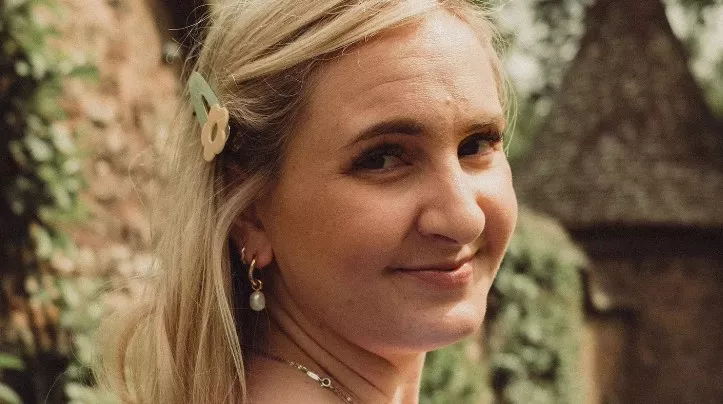
With this year’s Diabetes Week focusing on essential care, Lucy MacDonald has opened up about her experience of poor diabetes care. Her type 1 diabetes journey has been a difficult one; an extreme needle phobia meant she was reluctant to accept her diagnosis and there was a lack of support from her healthcare team. The experience has been detrimental to her mental health.
Content warning – this post discusses suicide.
I was diagnosed with type 1 diabetes in 2020 when I was 23 years old, just before the country went into lockdown. I’m a lecturer in biology, so had recognised the symptoms but had been putting off going to the doctor’s due to an extreme needle phobia. I just couldn’t accept a life with type 1 diabetes where I’d have to inject myself multiple times a day, every day.
But on Valentine’s Day 2020, the symptoms became too much, and I had to take myself to A&E where I quickly received a diagnosis.
Diagnosis and needle phobia
Initially the healthcare staff were incredibly helpful, and I was given a Freestyle Libre flash glucose monitor and rapid and long-acting insulin pens to help manage things. But during lockdown, my appointments were regularly cancelled and I was left feeling alone with a lifechanging diagnosis. Because of my cancelled appointments and a lack of support from my healthcare team, I felt like I could get away with not injecting insulin because I just couldn’t address my needle phobia.
Apart from my annual blood tests, I didn’t receive any diabetes care. There are diabetes health checks you should have every year which include checking your blood pressure and cholesterol. These checks are key to picking up any early signs of diabetes complications so that early treatment and intervention can take place.
It wasn’t until I was called up as a vulnerable person for the Covid vaccine, that the nurse giving me the vaccine asked how I was managing my diabetes if I had a needle phobia. It was then that I just broke down and told her everything. Thankfully I was referred to my local mental health care team, and they’ve been an invaluable source of support for me.
I was off work sick a lot during this time and when my students started to complain that I was never around, I finally came to terms with the fact I was in a really dark place. It was all too much juggling my job, being a mum, trying to come to terms with a needle phobia and my diabetes diagnosis and I was left feeling suicidal, because I just couldn’t see how I would ever be able to manage the condition.
Importance of support
I feel grateful for the support I’ve received since then, to get my mental health back into a better place.
I’m still on reduced hours at work, and I’ve been getting Cognitive Behavioural Therapy following a diagnosis of diabulimia. My diabetes care has also been addressed after I sent a letter to my local hospital outlining my experience and the impact it’s had on my mental health. When I received a response from the GP practice, I remember feeling such relief when I was offered support, but I was also left feeling frustrated because the past four years could have been so different.
I’ve also recently been given access to an insulin pump and within two weeks, it had changed my life for the better.
My advice for anyone who is in denial about their diagnosis, or struggling to cope with their diabetes management? Reach out for support. It doesn’t make you a weak person because you’re finding it too much to handle, you’re living with a lifechanging diagnosis and it can have a devastating impact on your physical and mental health if you don’t get the support you need.
My advice for healthcare professionals supporting people with diabetes? Care needs to be tailored to the individual. I feel like my needle phobia wasn’t taken seriously, but if it was addressed from the outset, and the relevant psychological support provided, I could have been able to accept my diagnosis a lot sooner than I did.
